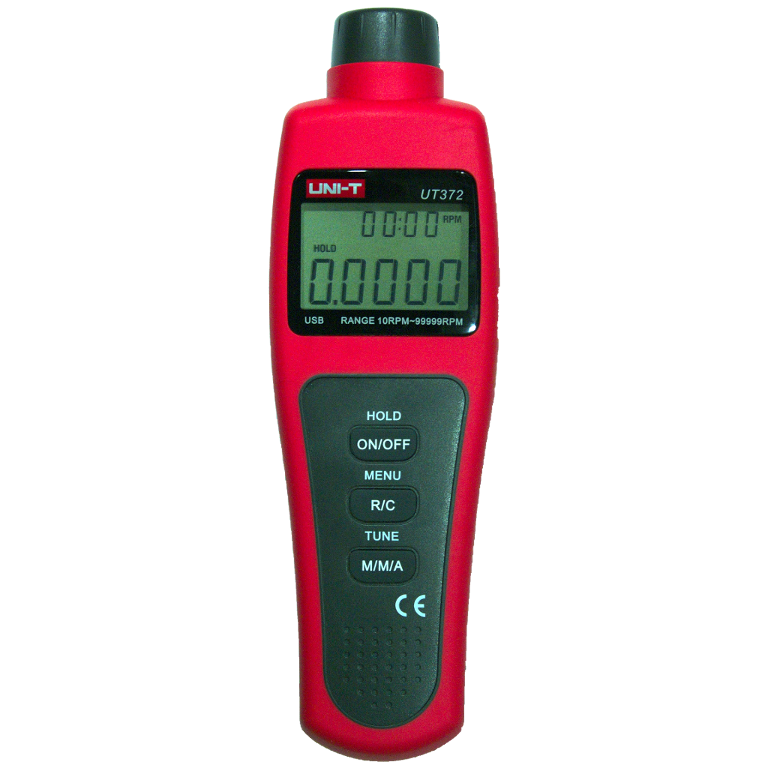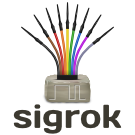UNI-T UT372 now supported
 libsigrok now supports a new device class, tachometers! The first supported device of this type is the UNI-T UT372.
libsigrok now supports a new device class, tachometers! The first supported device of this type is the UNI-T UT372.
It's a USB-attached device (uses one of the WCH CH9325 ICs commonly found in UNI-T gear) that can measure RPM and counts.
The protocol of the device (now documented in the sigrok wiki) was reverse engineered by Mike Walters, using a somewhat unusual and quite interesting technique. Instead of the usual method of sniffing the USB traffic and then staring at hex numbers until things start to make sense, he used the following method:
After a first quick look at the USB traffic it was pretty clear that the packets usually look something like this:
070?<3=7<60655>607;007885
Now, instead of trying to figure out which bit and byte means what by looking at many of these packets, Mike instead generated his own packets that looked like the real packets from the UT372. He sent them to the vendor's PC software (via a custom-built "emulator" on a USB-enabled Arduino), which then interpreted and displayed the values and flags that it thought were sent by an actual UT372 device.
By randomly flipping bits in these packets and observing how the PC software's interpretation of the packets differed, Mike was able to figure out the individual protocol details a lot faster than using other methods.
Shortly after the protocol was known, Martin Ling wrote a libsigrok driver for the UT372 by hooking up a device-specific ut372 parser to the existing uni-t-dmm driver in libsigrok (which already handles the somewhat "special" CH9325 details).
Thanks a lot to Mike Walters and Martin Ling for their contributions!
- Uwe Hermann's blog
- 4479 reads
